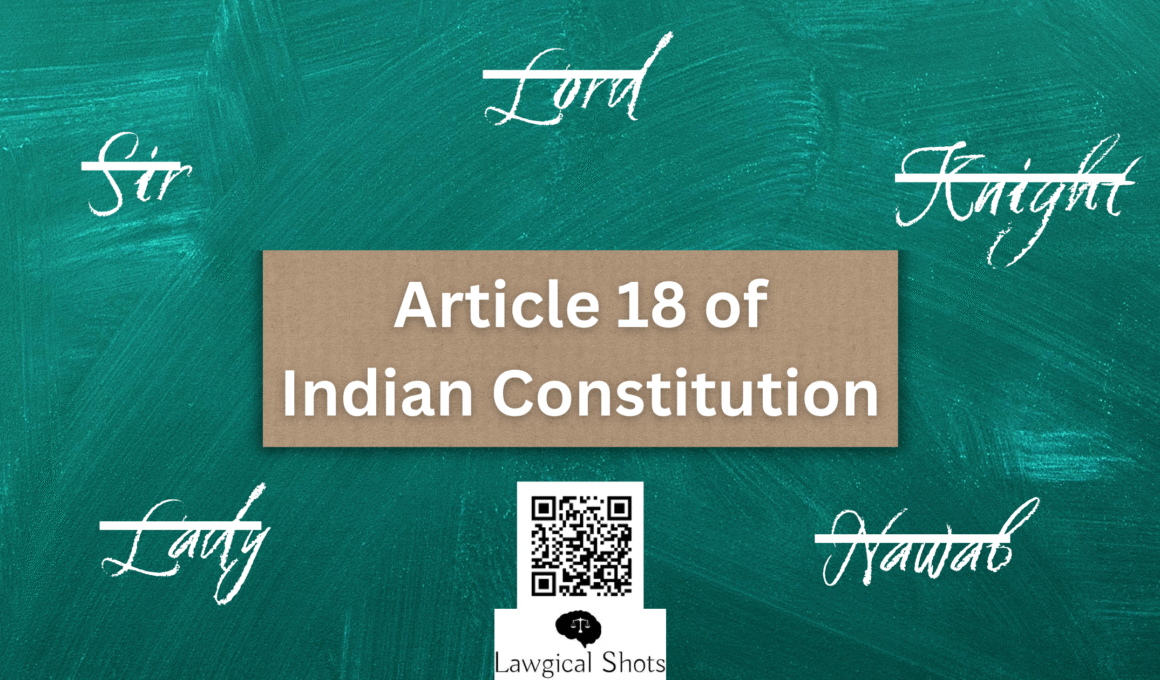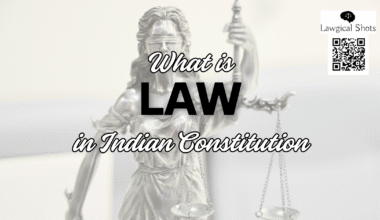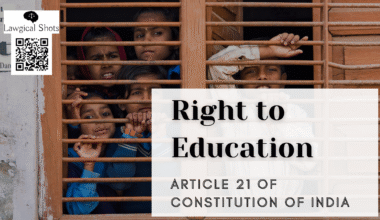Imagine waking up one morning to find your building’s WhatsApp group buzzing with excitement. Someone just announced that Mr. Mehta from the 7th floor has been conferred the title ‘Duke of Dombivli’ for his “exceptional contributions to society,” namely, organizing the best Navratri function in the entire housing complex. Not to be outdone, Mrs. Fernandes from Bandra was declared the ‘Countess of Carter Road’ for her Instagram-worthy Sunday brunches. Meanwhile, the builder of your new Andheri apartment insists on being addressed as the ‘Baron of Versova.’
Ridiculous? Absolutely. But if India had not inserted Article 18 into its Constitution, this may not have been far from reality. We might have been surrounded by Sirs and Dames, Lords and Ladies, not because of merit, but because of privilege, connection, or flattery.
The Constitution of India, adopted in 1950, is not merely a legal document; it is a declaration of India’s transition from colonial monarchy to a sovereign, democratic republic. It enshrines the fundamental values of liberty, equality, and fraternity, ensuring that all citizens are treated with equal dignity and respect.
Article 18 is included in Part III of the Constitution, which deals with our Fundamental Rights. It falls under the group of Articles from 14 to 18, all of which are focused on ensuring equality for every citizen.
While our Constitution ensures dignity and equality, Article 18 of the Indian Constitution takes it one step further.
Article 18 of Constitution of India
Let’s look at what is laid down in Article 18 of the Indian Constitution:
Article 18 – Abolition of Titles
- No title, not being a military or academic distinction, shall be conferred by the State.
- No citizen of India shall accept any title from any foreign State.
- No person who is not a citizen of India shall, while he holds any office of profit or trust under the State, accept without the consent of the President any title from any foreign State.
- No person holding any office of profit or trust under the State shall, without the consent of the President, accept any present, emolument, or office of any kind from or under any foreign State.
Article 18: Historical Context
- During British rule, titles like Rai Bahadur, Khan Bahadur, Sir, and Lord were often awarded by the colonial government, not for merit, but as rewards for loyalty to the British Crown.
- These titles created artificial layers in society, giving some people special status and privilege over others. They weren’t just honorary; they became symbols of superiority, used to maintain a system of social hierarchy.
- When India became a free and independent republic, our Constitution-makers wanted to break away from this legacy of inequality. They believed that in a truly democratic and equal society, respect should come from personal achievements, not from titles handed down by the government.
- This is the reasoning behind the inclusion of Article 18.
- While Article 18 puts an end to titles rooted in privilege or social rank, it still makes space for those that honour genuine merit and public service, titles earned, not inherited.
Exceptions to Article 18 of Indian Constitution
- Academic Titles
These are earned through education or professional qualification, not conferred as honorifics.
Examples: Doctor (Dr.), Professor, CA (Chartered Accountant) - Military Titles
These are ranks within the armed forces and reflect service and responsibility.
Examples: Colonel, Major, General, Commander - Civilian Awards
Awards like Padma Shri, Padma Bhushan, Padma Vibhushan, and Bharat Ratna are not considered as “titles” under Article 18. - State/ Government Recognition Without Title Effect
Awards like the National Film Awards, Sports honours, and Gallantry medals are permissible as long as they do not carry a hereditary or honorary status.
RECOGNISED VS ABOLISHED TITLES
The Constitution has style, but not for royal titles. Here’s what’s in and what’s out.
| Recognized titles | Abolished titles |
| Dr. (Doctor) | Sir |
| Prof. (Professor) | Rai Bahadur |
| Major/ Colonel/ General | Lord/ Lady |
| Chartered Accountant | Nawab |
| Ph.D or Academic Degrees | Knight/ Dame |
Landmark Case on Article 18 of Constitution
BALAJI RAGHAVAN CASE
The interpretation of Civilian Awards was clarified in Balaji Raghavan v. Union of India (1995), where the Supreme Court upheld the validity of civilian awards, stating that they are not unconstitutional as long as they are not used to create a sense of superiority or attached to a person’s name as a title.
MERIT OVER MONARCHY: ARTICLE 51 A (j)
While Article 18 prohibits titles that create artificial social distinctions, the Constitution also encourages genuine recognition of merit through Article 51A(j), which states:
“It shall be the duty of every citizen of India to strive towards excellence in all spheres of individual and collective activity.”
DID YOU KNOW?
- Titles like Rai Bahadur, Khan Bahadur, and Sir were once handed out by the British to Indians who supported colonial rule. Many wore them with pride, some rejected them as a mark of protest.
- Even if Queen Elizabeth offers you a knighthood today, you can’t accept it as an Indian citizen. So, sorry, “Sir Sharma” is still illegal.
The government even issued a 1995 notification reminding recipients not to use civilian awards as name prefixes thereby reinforcing Article 18’s intent.
As Dr. B.R. Ambedkar rightly pointed out during the Constituent Assembly Debate, “We have not abolished titles for nothing. We have abolished them because we do not believe that there should be any titular distinctions in this country.”
CONCLUSION
So, the next time someone jokingly refers to themselves as the ‘Queen of Kandivali’ or the ‘Sultan of Santacruz,’ smile and remind them that in India, no title stands taller than the title of citizen! May be they need a reminder to go through Article 18 of the Constitution of India.
The intricacies of Article 18 of Constitution of India are hereby explained by our intern, Ms Tisha Parmar. She has been assisting the team in bringing informational legal blogs.








